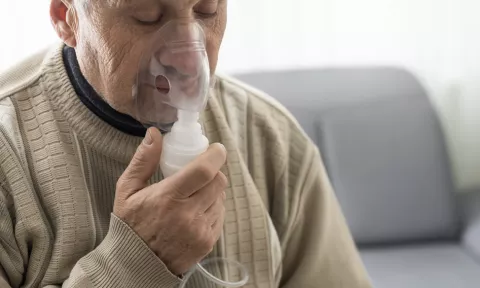The phase 2a, randomized, double-masked, placebo-controlled FRONTIER-4 study did not meet its primary endpoint in the overall COPD population. However, tozorakimab showed greater clinical benefit in patients with a history of ≥2 exacerbations.
The trial evaluated tozorakimab, an anti-IL-33 monoclonal antibody, in 135 patients with moderate-to-severe COPD and chronic bronchitis receiving dual or triple inhaled therapy. Patients received tozorakimab 600 mg or placebo subcutaneously every four weeks for 24 weeks. The primary endpoint was a change in pre-bronchodilator (pre-BD) FEV₁ from baseline to week 12. Secondary outcomes included post-bronchodilator (post-BD) FEV₁, time-to-first COPDCompEx event, and safety.
At week 12, the tozorakimab group showed a non-significant improvement in pre-BD FEV₁ compared to placebo (least-squares mean [LSM]: 24 mL; 80% confidence interval [CI]: –15 to 63; p=0.216). Post-BD FEV₁ improvement was statistically significant (LSM: 67 mL; 80% CI: 17 to 116; p=0.044). In a pre-specified subgroup with ≥2 prior exacerbations, changes in pre-BD FEV₁ (LSM: 69 mL; 80% CI: 9 to 130; p=0.072) and post-BD FEV₁ (LSM: 124 mL; 80% CI: 47 to 201; p=0.020) were more pronounced. No significant difference was seen in the time-to-first COPDCompEx event in the overall group (hazard ratio [HR]: 0.79; 80% CI: 0.57 to 1.11; p=0.186), though the subgroup with ≥2 exacerbations showed better outcomes (HR: 0.61; 80% CI: 0.37 to 1.00).
Treatment effects were similar across current and former smokers. Tozorakimab was well tolerated with no significant safety concerns. The findings suggest potential for targeted benefit in high-risk COPD patients.

